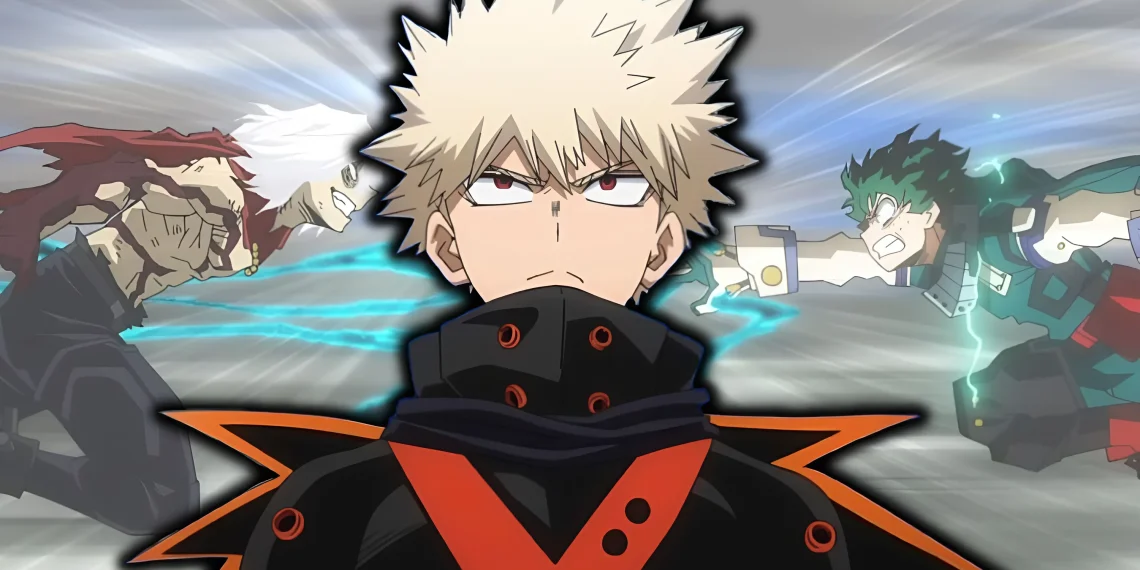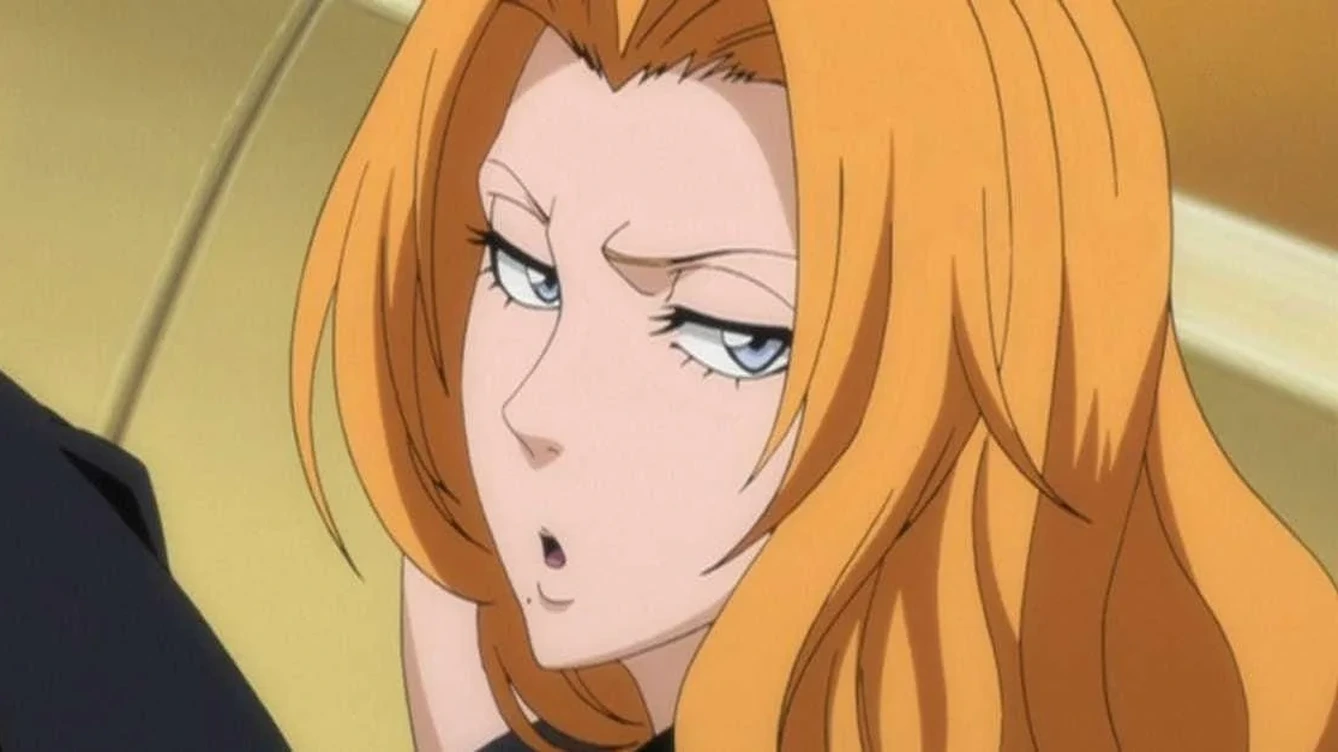My Hero Academia has attracted the fans worldwide with its rich cast of characters and their journeys toward becoming true heroes.
Among these characters, Katsuki Bakugo stands out as one of the most complex and polarizing.
From his fierce temper to his explosive powers, Bakugo’s initial portrayal as a brash, aggressive individual led many fans to see him solely as an antagonist.
But as the story has unfolded, we’ve seen that there’s much more to Bakugo than meets the eye.
Creator Kohei Horikoshi has masterfully crafted a character who, despite his flaws, undergoes genuine personal growth and transformation.
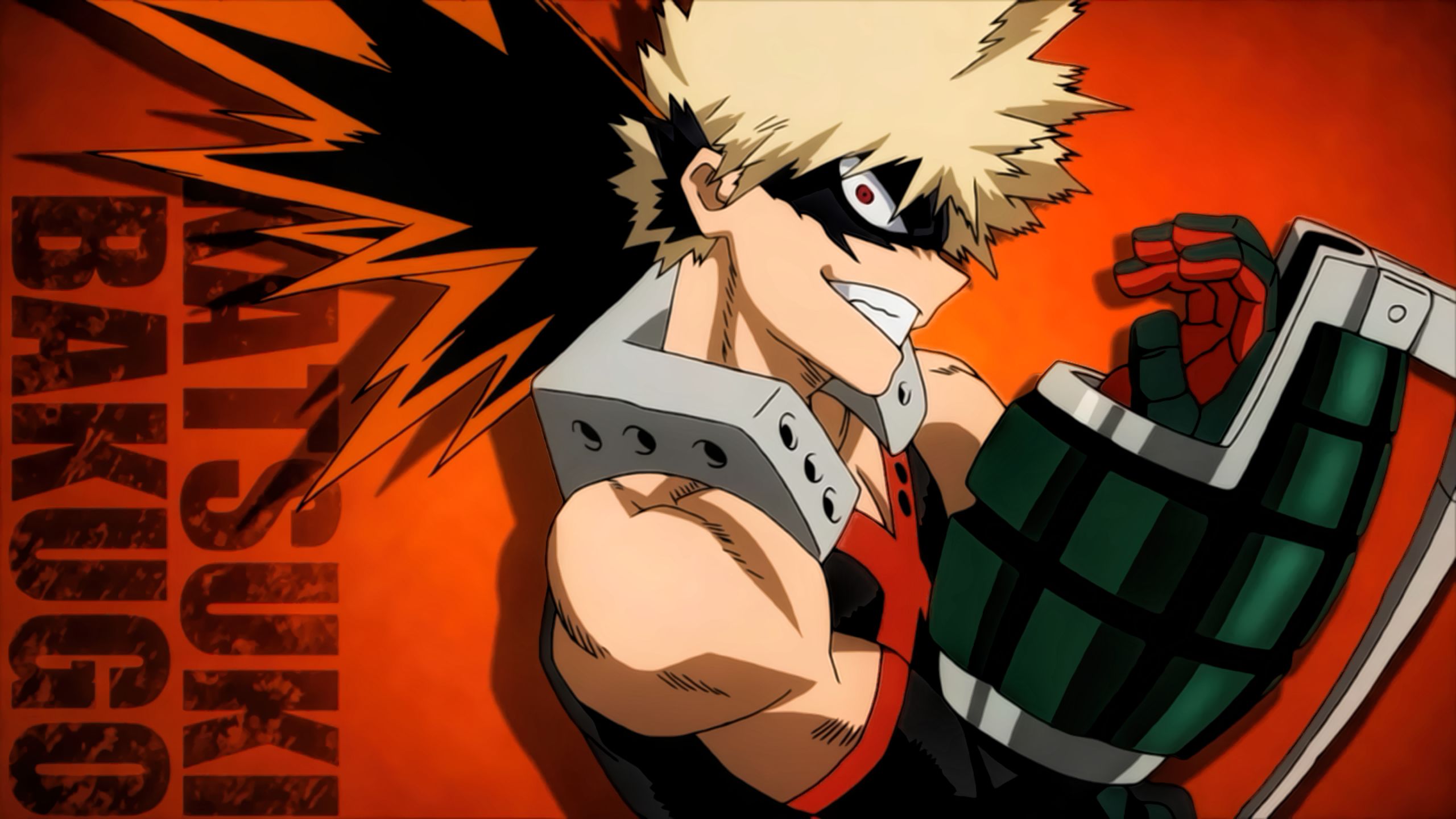
Over time, Bakugo has evolved from a loud, self-centered bully to a more nuanced and, ultimately, admirable figure.
His journey shows a character grappling with insecurity, guilt, pride, and the need for acceptance and validation emotions that resonate with many.
However, some fans find it difficult to see beyond his earlier transgressions, missing the rich, layered journey Bakugo goes through.
This misinterpretation overlooks a significant aspect of My Hero Academia’s message: that true heroism isn’t just about strength; it’s about growth, compassion, and learning to overcome one’s inner struggles.
In this article, we’ll go deeper into the transformation of Katsuki Bakugo, exploring how he went from a troubled bully to a figure of genuine heroism and the different stages of growth that make him one of the most intriguing characters in My Hero Academia.
From Bully to Rival: The Origins of Bakugo’s Complex Character
When we first meet Katsuki Bakugo, his character is hard to overlook. He’s introduced as a loud and abrasive presence, a person who commands attention and acts with complete confidence in his own abilities.
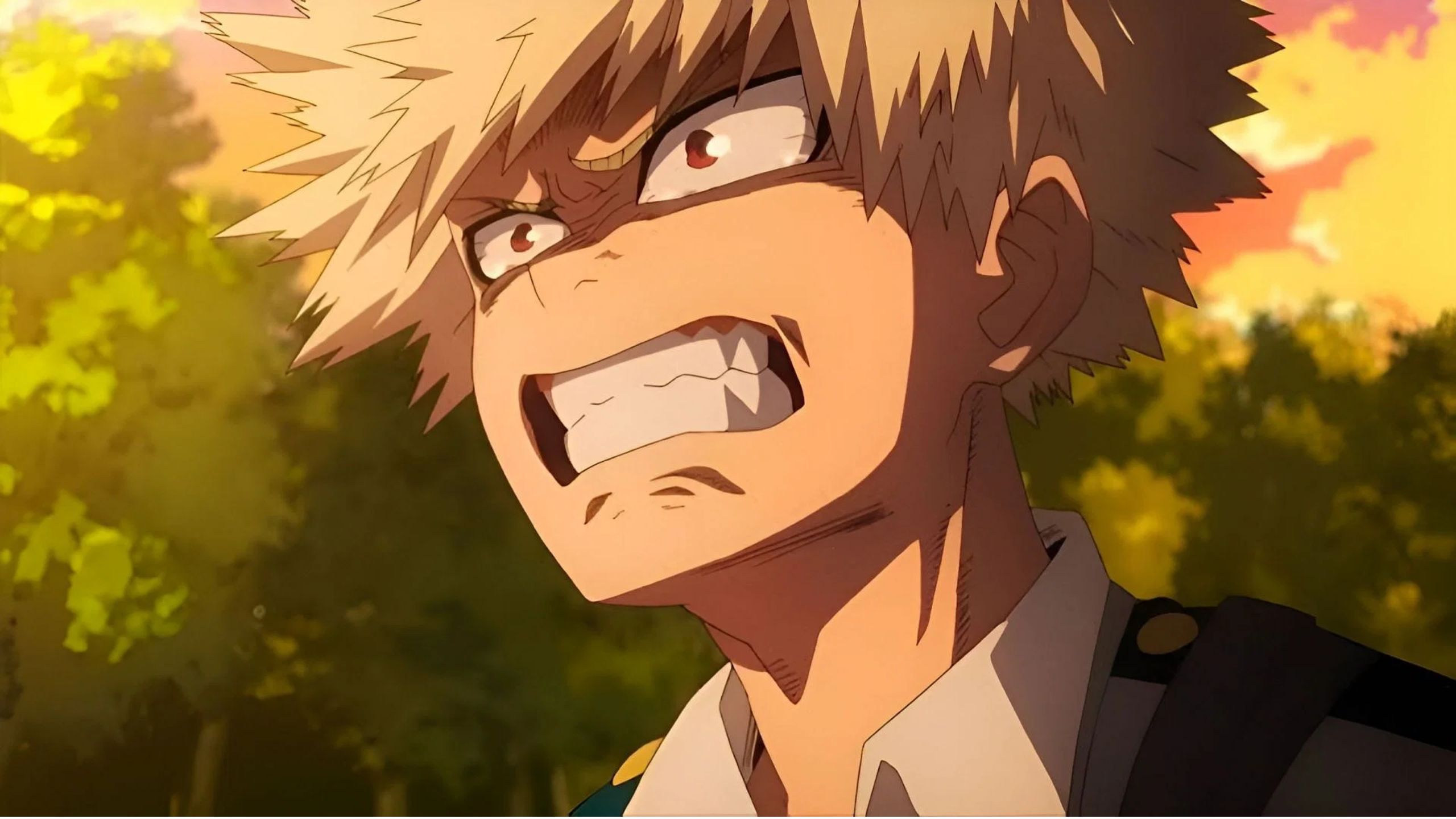
Armed with an immensely powerful Quirk called Explosion, Bakugo has been conditioned to believe he’s exceptional, destined for greatness.
His Quirk allows him to create explosions from his sweat, a power that’s both visually impressive and highly destructive, lending to his cocky and overconfident nature.
The praise and admiration he received as a child only inflated his ego further, setting him on a path where he viewed himself as superior to everyone else.
Bakugo’s interactions with Izuku Midoriya, or Deku, highlight the less admirable aspects of his character.
From a young age, Bakugo looked down on Deku, who was born without a Quirk, and went out of his way to assert his dominance over him.
This bullying was not just a product of his inflated self-esteem; it also revealed Bakugo’s disdain for what he perceived as weakness.
In his eyes, Deku represented everything he despised someone powerless, yet unwavering in his resolve.
Bakugo saw this quiet determination as a threat to his own sense of superiority, which he tried to reinforce by keeping Deku beneath him.
However, Deku’s unexpected rise begins to shake Bakugo’s confidence.
When Deku inherits the powerful Quirk One For All (OFA) from the legendary hero All Might, Bakugo’s perception of himself and his relationship with Deku is challenged.
Suddenly, the boy he used to mock is becoming a formidable rival. Bakugo’s intense emotions, particularly his resentment and jealousy, come to the surface as he grapples with the idea of Deku surpassing him.
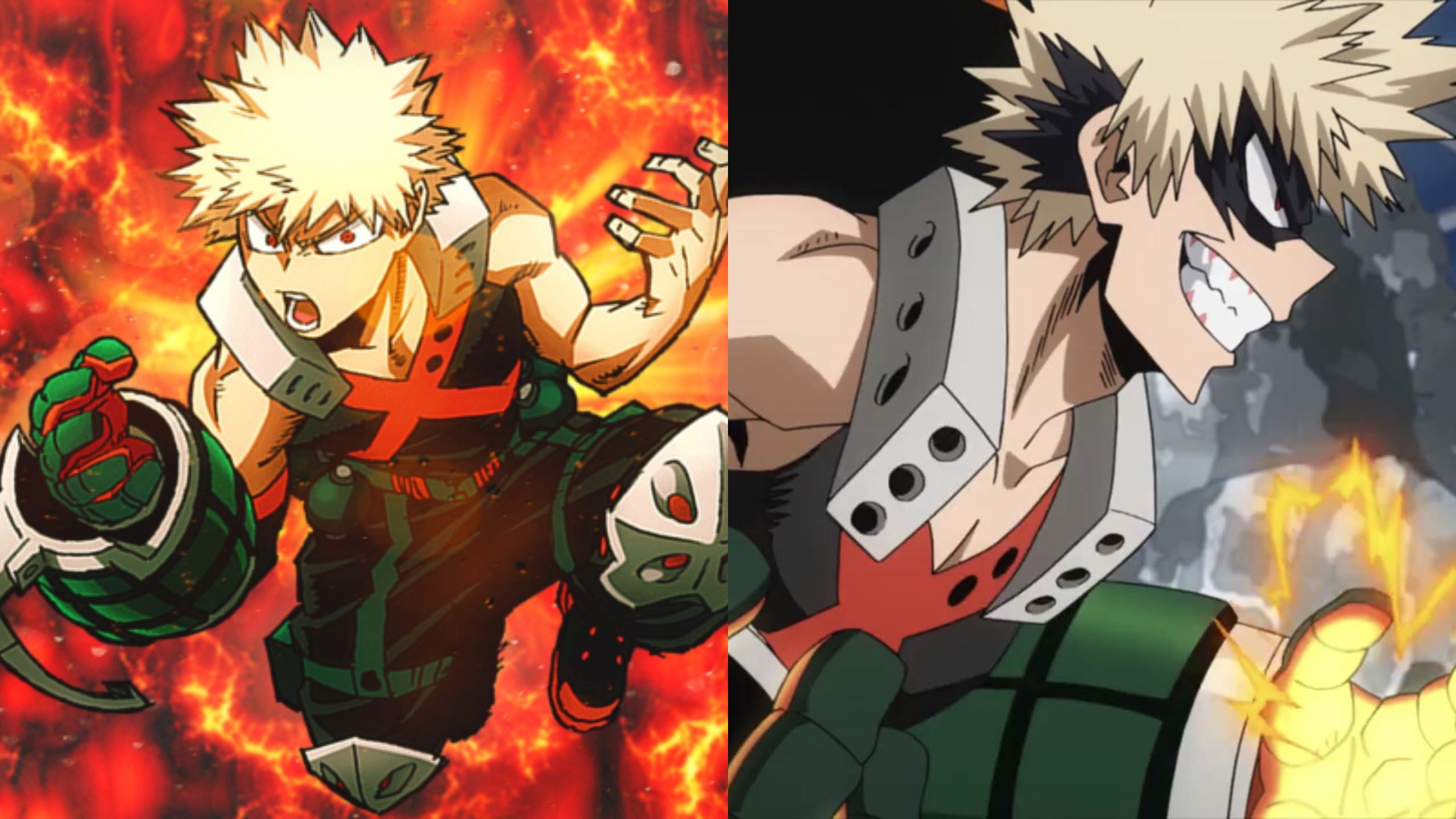
His need to be the best is no longer just about himself; it’s intertwined with his fear of being overshadowed by someone he once deemed inferior.
This rivalry, while initially antagonistic, becomes a catalyst for Bakugo’s transformation.
The Impact of Constant Competition: Early Signs of Change
In the first seasons of My Hero Academia, Bakugo remains largely the same: a hotheaded, egotistical figure who refuses to accept anyone as his equal.
His disdain for Deku is evident at every turn, and his actions often come across as cruel or thoughtless.
However, we start to see subtle signs of change, particularly during pivotal moments like the Sports Festival and the encounter with All Might.
The U.A. High School Sports Festival marks a significant point in Bakugo’s journey. This high-stakes event pits the students against each other, testing their abilities and resolve.
Bakugo’s determination to win is fierce, yet he finds himself constantly observing Deku’s progress.
Although he outwardly maintains his superiority, inwardly, Bakugo is forced to acknowledge Deku’s resilience and creativity.
The festival serves as a moment where Bakugo’s perspective begins to shift, even if he doesn’t fully understand or accept it yet.
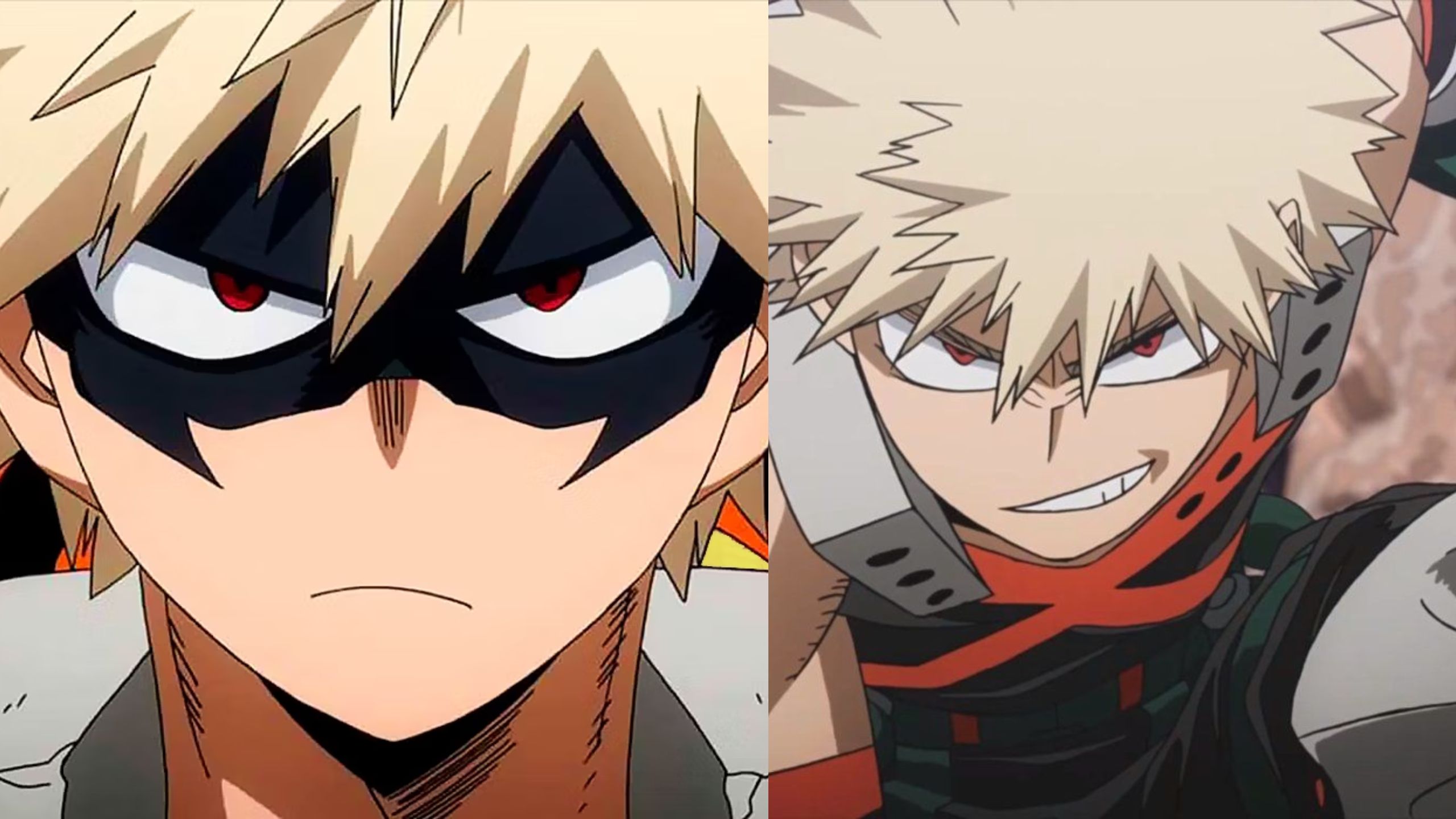
Another crucial moment comes when Bakugo is captured by the League of Villains. Although he manages to escape, the experience deeply affects him.
This ordeal makes him confront his own vulnerability and the fragility of his strength. Bakugo, who had always prided himself on his invincibility, is forced to acknowledge his limitations.
He also realizes the impact of his actions on those around him, as he feels responsible for the sacrifices others made to protect him.
This incident instills in Bakugo a sense of guilt and failure, marking the start of his self-reflection and the beginning of a profound transformation.
Confronting His Insecurities: A Pivotal Moment with All Might
One of the most impactful moments in Bakugo’s journey is his conversation with All Might, which brings his internal struggles to the forefront.
In a moment of vulnerability, Bakugo confides in All Might, admitting the complex feelings he has toward Deku.
He opens up about his insecurities and confesses that his antagonism towards Deku was driven by a deep-seated fear of his resilience and strength, traits he once dismissed but has come to recognize and respect.
For Bakugo, acknowledging these feelings is a huge step; it forces him to confront the insecurities he has masked with arrogance and aggression.
All Might’s response is pivotal. He doesn’t scold or judge Bakugo; instead, he listens and provides reassurance, showing Bakugo that he doesn’t need to bear his burdens alone.
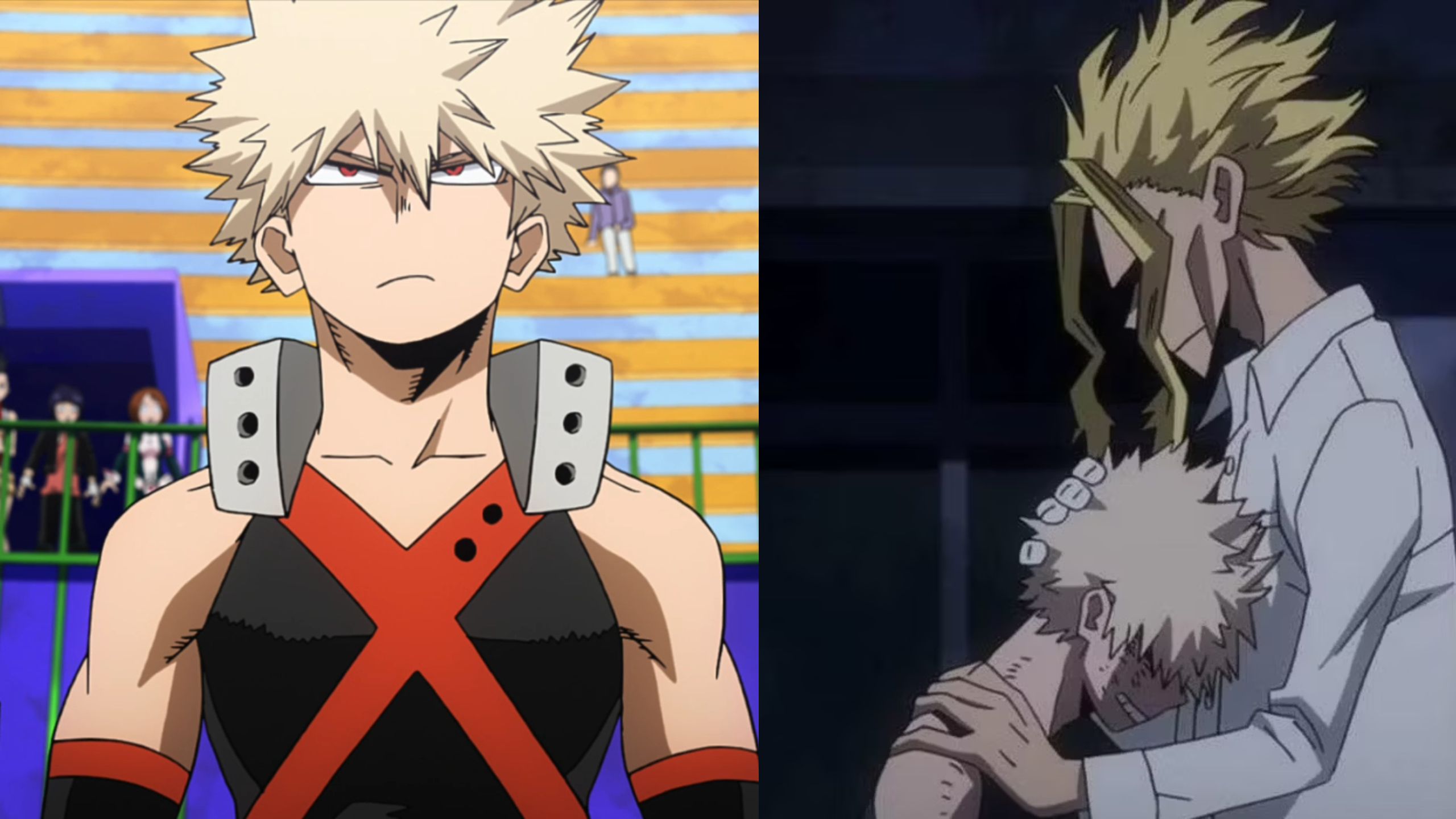
This moment signifies a shift in Bakugo’s character. For someone who prided himself on his independence and strength, reaching out and revealing his vulnerabilities is both humbling and empowering.
It allows him to start seeing Deku as a comrade rather than a threat. This conversation with All Might helps Bakugo understand that his path to becoming a hero isn’t a solitary one, and that true strength involves accepting support from others.
The Internship Arc: Learning from Failure and Growing in Humility
The Internship Arc is another critical phase in Bakugo’s development. Paired with other heroes, Bakugo is pushed to confront his limitations in a real-world setting.
The experience forces him to take on more responsibility, learn teamwork, and even accept guidance from those he once considered beneath him.
He realizes that power alone isn’t enough to make a difference in people’s lives; it’s about how he uses that power and the kind of person he becomes in the process.
This arc also highlights the growth in Bakugo’s understanding of heroism. His interactions with other heroes and his experiences during the internships help him see that being a hero is not just about being strong or winning fights.
It’s about protecting people, making sacrifices, and working as part of a larger team.
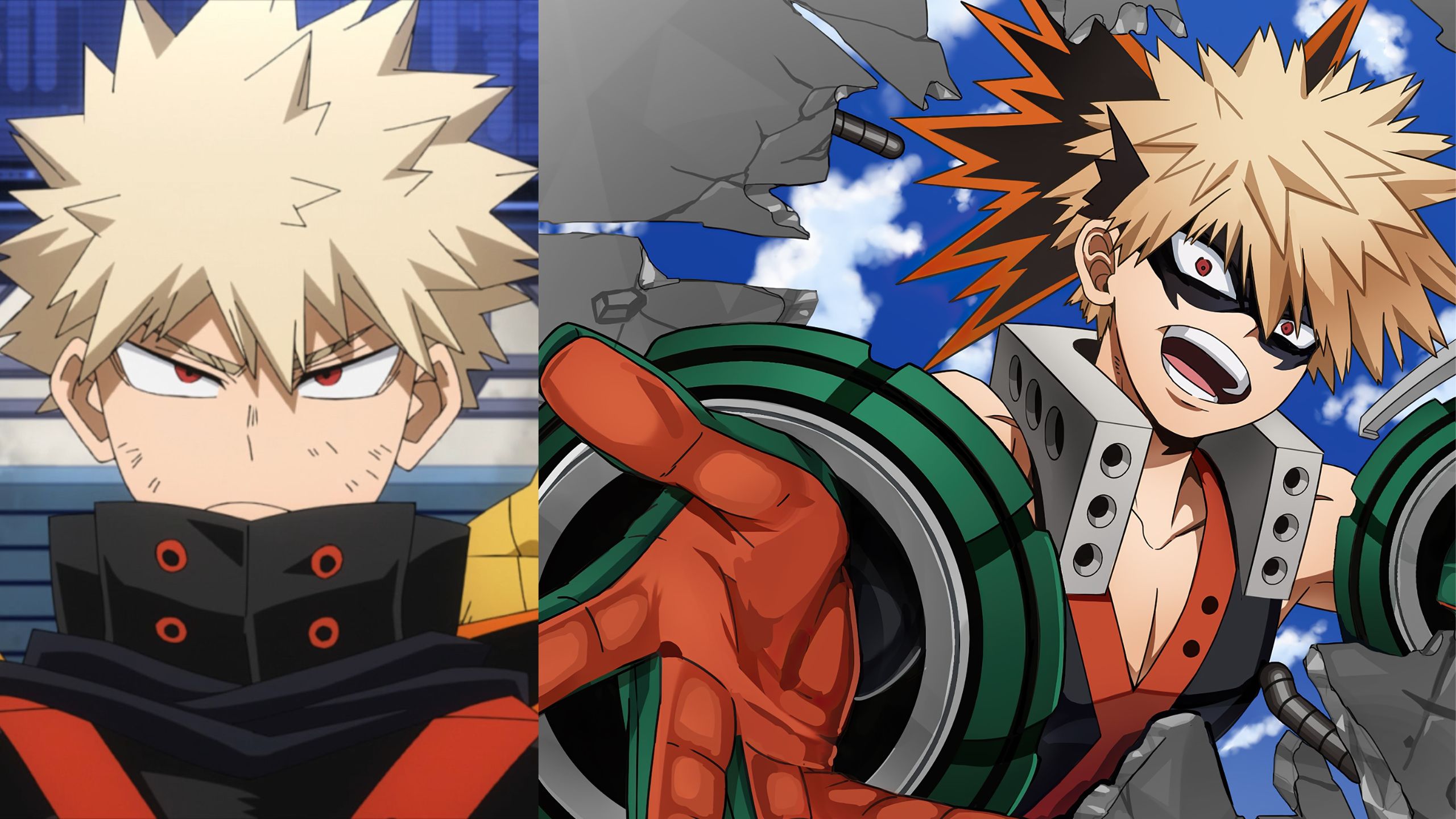
Through this experience, Bakugo begins to develop a more nuanced view of what it means to be a hero, marking another step in his journey towards true growth and maturity.
In the War Arc, Bakugo’s development takes a new direction. Faced with life-threatening danger, he finds himself acting not out of pride but out of a genuine desire to protect others, including Deku.
In one of the series’ most emotional moments, Bakugo sacrifices himself to save Deku, showing a newfound selflessness.
This act of heroism, which comes at great personal risk, demonstrates just how far he has come from the days when he saw Deku as a mere obstacle to his own success.
Dark Deku Arc: Confronting Past Mistakes and Seeking Redemption
The Dark Deku Arc is arguably the most emotionally charged arc for Bakugo. During this period, Deku isolates himself from his friends to protect them, driven by a desire to keep them safe from the villains targeting him.
Bakugo, however, isn’t willing to let Deku carry this burden alone. In a powerful confrontation, Bakugo apologizes for the years of bullying and mistreatment, acknowledging the pain he caused Deku and the mistakes of his past.
This apology is a significant milestone in Bakugo’s journey. It’s not just a moment of regret; it’s a profound expression of his transformation.
Bakugo’s willingness to take responsibility for his actions and to make amends shows a level of maturity that would have been unimaginable in the early stages of the series.
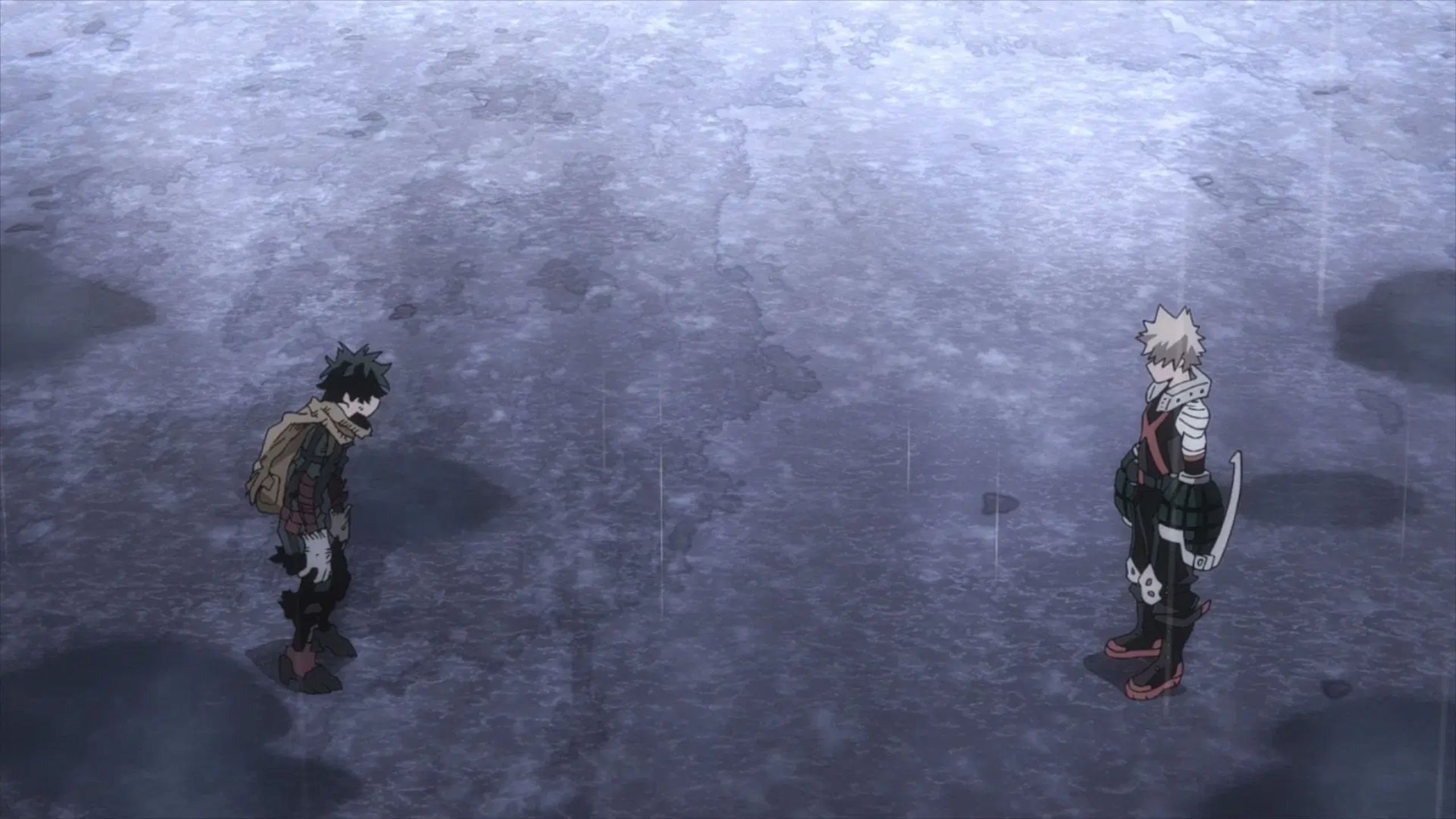
By apologizing to Deku, Bakugo frees himself from the guilt and bitterness he has carried, allowing him to truly embrace his role as a hero and friend.
The apology is more than just words; it’s a testament to how far Bakugo has come. He no longer needs to be the best at the expense of others. Instead, he recognizes the value of teamwork, compassion, and friendship.
This moment is a culmination of Bakugo’s entire character arc, as he sheds the last remnants of his prideful, arrogant persona and embraces a more humble, empathetic outlook.
Shifting Priorities: The New Meaning of Strength for Bakugo
For most of his life, Bakugo equated strength with superiority. He believed that being the strongest meant being the best, and that anyone who couldn’t keep up was weak and unworthy of his respect.
However, through his interactions with other heroes, his experiences in battle, and his evolving relationship with Deku, Bakugo learns that true strength is not about domination but about resilience, compassion, and the ability to inspire others.
Bakugo’s journey ultimately leads him to redefine what it means to be a hero. He realizes that heroism isn’t about seeking glory or proving oneself to others; it’s about making sacrifices, protecting others, and standing up for what is right.
This shift in perspective allows Bakugo to become not only a stronger hero but a better person.
He understands that being a hero means embracing his vulnerabilities, acknowledging his mistakes, and continually striving to improve not just for himself but for the people he cares about.
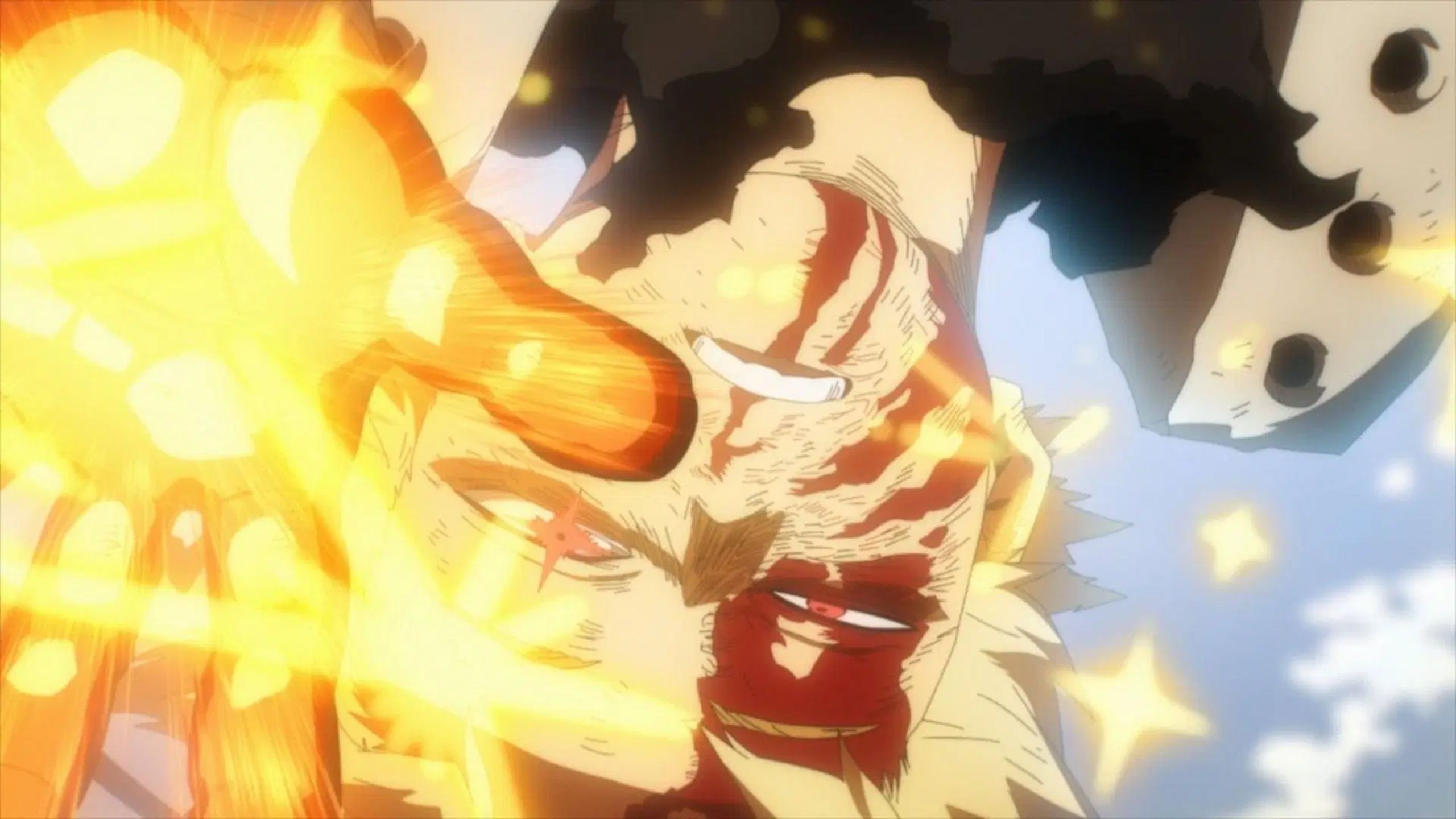
By the end of the series, Bakugo has evolved into a character who embodies true heroism.
He is no longer the brash, arrogant bully we met at the beginning; instead, he is a complex, multi-dimensional hero who has grown through his mistakes and emerged stronger and wiser.
His journey is a testament to the transformative power of self-reflection, humility, and the willingness to change.
Bakugo’s story reminds us that anyone, no matter their flaws or past mistakes, has the potential for growth and redemption.
Bakugo as a Symbol of Redemption and Growth in My Hero Academia
Katsuki Bakugo’s journey in My Hero Academia is one of the most profound character arcs in the series.
From his early days as a bully driven by pride and arrogance to his transformation into a hero who embodies selflessness and compassion, Bakugo’s character shows us that growth is a continuous process.
His evolution is a powerful reminder that real strength comes not from power alone but from the courage to confront one’s own flaws and the willingness to change.
Bakugo’s journey is not just about becoming a stronger hero; it’s about becoming a better person.
His story speaks to the idea that true heroism lies in one’s ability to change, to learn from past mistakes, and to strive to be better for oneself and others.
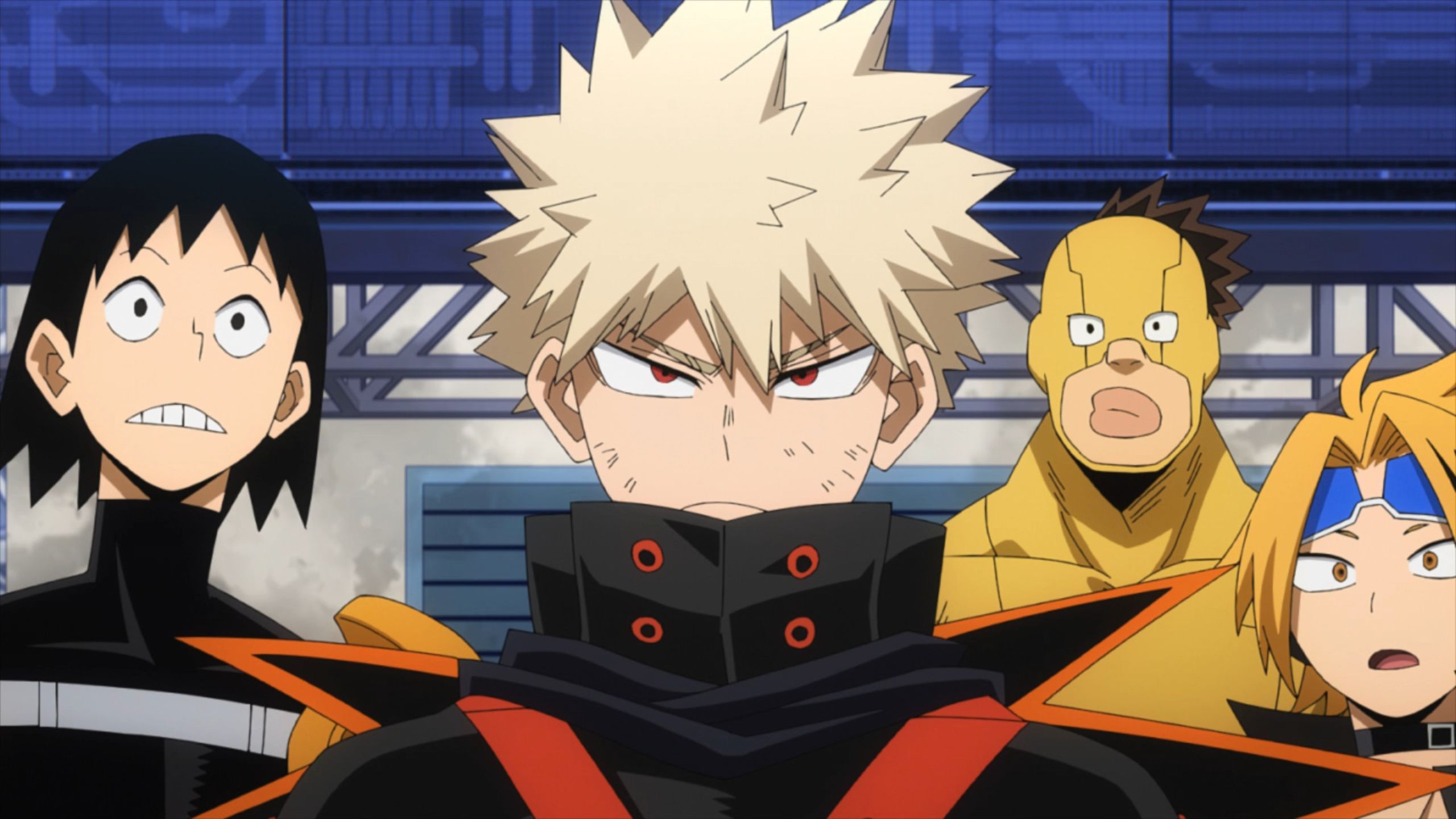
Bakugo’s transformation is a testament to the series’ message that everyone has the potential for growth, and that even the most unlikely individuals can become heroes if they have the courage to embrace change.
For fans of My Hero Academia, Bakugo’s character arc is a reminder of the power of redemption and the possibility of transformation.
Through his journey, Bakugo has shown us that no matter where we start, we all have the potential to become heroes in our own right by embracing growth, learning from our past, and striving to protect and uplift those around us.
Bakugo’s story is a true testament to the series’ message that heroism is not about perfection but about the willingness to grow, change, and be better.


